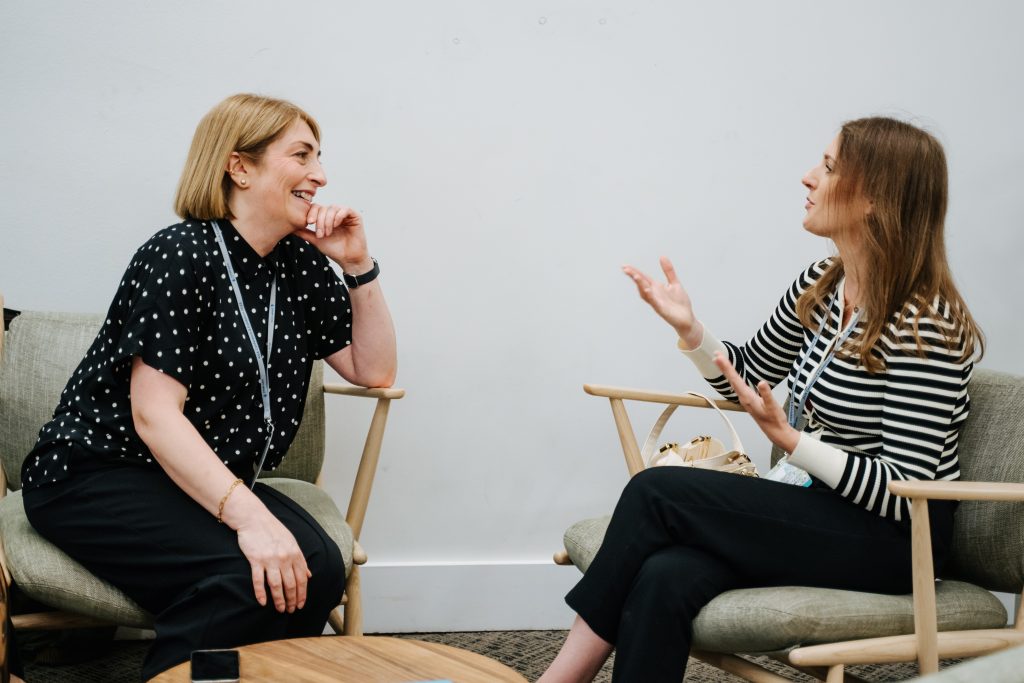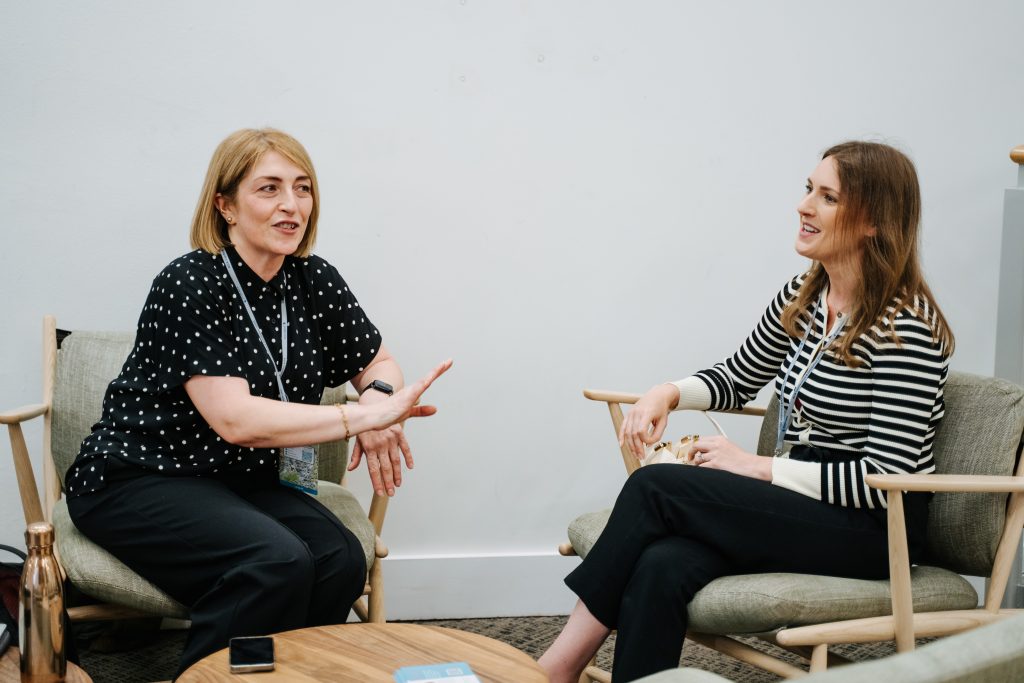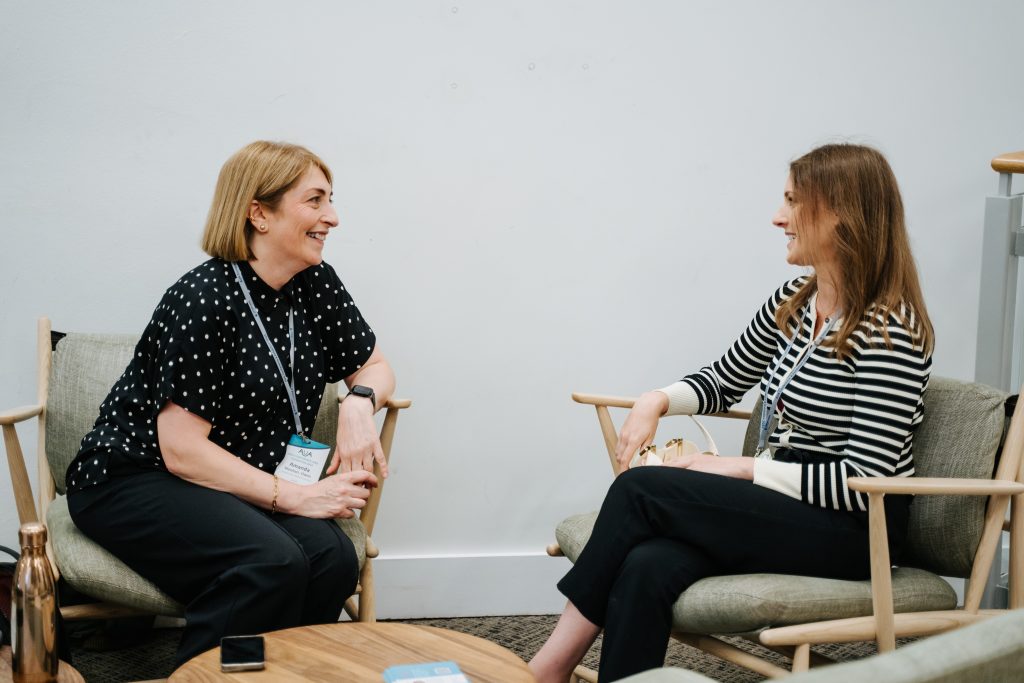
Amanda Owen Meehan – Amanda Owen Meehan Consulting
Development Monthly | #25 November 2023 | ‘Career Catalyst: HE insights for Professional Growth’
There will be times during your career when you feel stuck, uncertain, you’re in the wrong job, or that you just want more. The average career spans 47 years so if you don’t feel this way at some point, you’d be highly unusual. But who do you turn to when you need help and support? What are the key differences between a role model, mentor, sponsor, and coach and how do you decide who is the best person to help you achieve your career goals?
Who can help you develop your career?
It’s often said you should be thinking a couple of roles ahead in terms of your overall career planning and development. Securing your next role will largely depend on your experience and skills but how do you ensure you keep developing and evolving in your career? A role model, mentor, coach, and sponsor can all support you, but how do you decide who you need right now? And yes, you can work with more than one at any given time depending on exactly what you want to achieve.
Role models, mentors, coaches, and sponsors all help you succeed but how they do it and why they do is where the similarity ends. It’s a bit like using a hammer to do all your DIY. Choosing the right person to guide you through your career is like finding the right tool for the job and sometimes you might need more than one tool at any point in your career to get the best results. Let’s look at who does what and how they can help you. And yes, it can be confusing when the titles are often used incorrectly and interchangeably.
Who’s who?
Role model – someone you admire and may want to become
Mentor – someone who talks with you to offer guidance based on their experiences
Coach – someone who talks to you, asking questions – holding space as you do the work
Sponsor – someone who talks about you to others
What is a Role model?
A role model is someone you admire and want to emulate. Your role model might be Katherine Freese, Jacinda Ahern, or someone you know much closer to home. You may never meet this person and it doesn’t matter – you can still admire and respect them and maybe base aspects of your career journey on theirs.
What is a Mentor?
A mentor is someone who usually helps free of charge. They talk with you about your career goals, plans, and aspirations. They are normally from the same sector as you but with more experience and often seniority. Think of Yoda when you think about a great mentor. Yoda conveys his experience to help other Jedis improve their skills and be better at what they do. Mentors use their own expertise to help you boost your career progression. They can help you navigate challenges they’ve already worked through. Think of it as walking on a path that someone has already navigated and cleared ahead of you.
You can often find mentors through your workplace, your network, or through external organisations. The relationship lasts as long as you need it to and they can support you by sharing industry knowledge, offering advice on work problems, sharing network connections and making introductions. They can also serve as a helpful reference when it comes to applying for new job opportunities. Mentors are there because they want to be and not because they are getting paid to do it. They have no obligations to their employer or to you.
What is a Career Coach?
A career coach is someone who gives you tools to do things on your own and holds you accountable to make progress in your career. They are ultimately performance driven. A coach doesn’t need to have experience in the same field as you and they don’t need to know about your work ‘stuff’ to help you grow. A coach also doesn’t give advice – in fact this goes against the ethical code that most coaches work to. Coaching is based on the understanding that you already know the answers to your problems – in short, a good coach helps you to help yourself.
There is a common misconception that career coaches are only there to help you find a new role but there’s much more to it than that. If you’ve got your eye on a senior leadership opportunity, you might need to work on your mindset and self-belief first.
Working with a coach will usually require a financial investment and you’ll need to find one that is a good fit for you, your goals and budget. The coaching industry is currently unregulated, so it’s a case of buyer beware. Do your due diligence, check accreditations, ask to see recommendations, or if it’s possible speak to former clients and see how they found the coaching experience. There may also be opportunities to access coaching within your organisation which means that this part is done for you. Virtually all coaches offer a free discovery call so you can see what it would be like to work with someone as personalities can make or break this relationship.
The coaching relationship is managed by a formal coaching contract that both you and the coach sign up to. This relationship is usually time-bound over a number of sessions and not ongoing over a longer period – once the issue is resolved the relationship ends. That doesn’t mean that you can’t return to work with a coach in the future if new challenges present themselves or your career goals change.



What is a sponsor?
A sponsor is a person senior to you and in the same line of work. They often work for your existing organisation or the organisation you would like to work for so they can have a direct influence over your career growth and progression. You can’t request a sponsor; you have to earn one.
A sponsor will advocate for you by using their influence, power and network to give your exposure to better career opportunities. The person receiving the sponsorship benefits the most, but the sponsor can take credit when their protégé does well. A sponsor doesn’t help with goal setting or accountability and it’s unlikely they would spend much time with you if you were refining your CV or prepping for an interview. No fee is charged for this relationship and it’s usually for the longer term where trust and credibility build over time
What next?
Choosing the best support to develop your career depends on what your goals are. If you are still a little uncertain on what comes next, try spending some time with these questions
- What do I like about my current role? What do I dislike?
- How can I do more of what I like and move away from what I don’t?
- What skills am I lacking right now? Do I know what to do to improve?
- How do I imagine my career path will look?
- Do I want a promotion? Do I want to make a lateral move or find a completely new role?
The reality is that you may need a combination of support during your career journey. Try to think of it as your own personal Board of Directors to guide your career development. Once you have a clear idea of what your career goals are and the type of support you need you can start finding the right person to help you with increased clarity.
And be prepared to do the work! With any of these relationships, you will always get out what you decide to put in.
I’m Amanda Owen Meehan a Career and Leadership Coach supporting you to get the career you deserve and helping organisations develop great leadership and engaged teams. If you’d like to know more about how I can help you and your organisation, you can connect with on LinkedIn www.linkedin.com/in/amandaowenmeehan or get in touch at amanda@amandaowenmeehan.com
You can listen to Season two of my weekly podcast ‘Career Espresso’ which shares simple, actionable and honest career and workplace advice here https://careerespresso.buzzsprout.com
Join the discussion @The_AHEP #Develop or scroll to the bottom for comments
Check out other articles from Development Monthly
